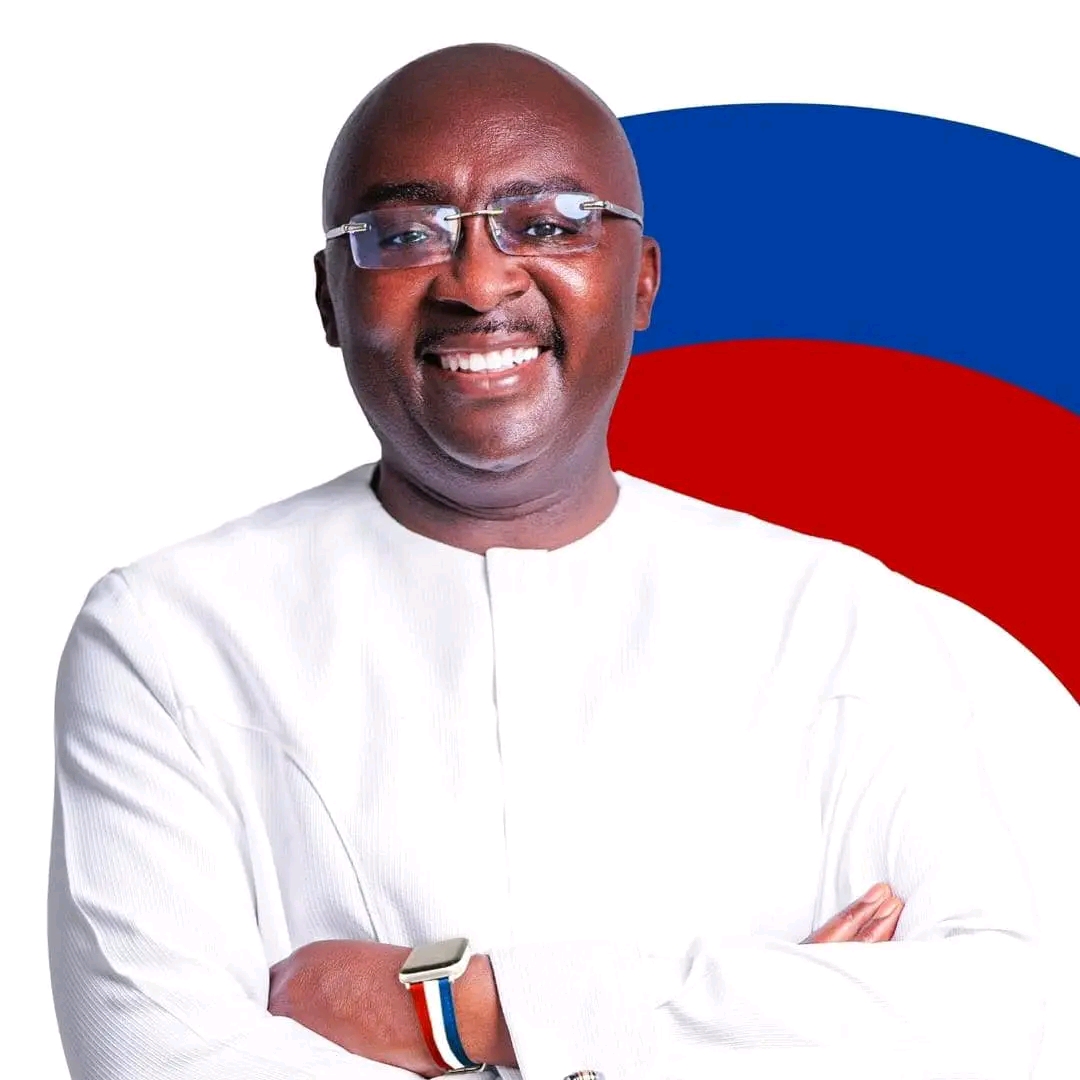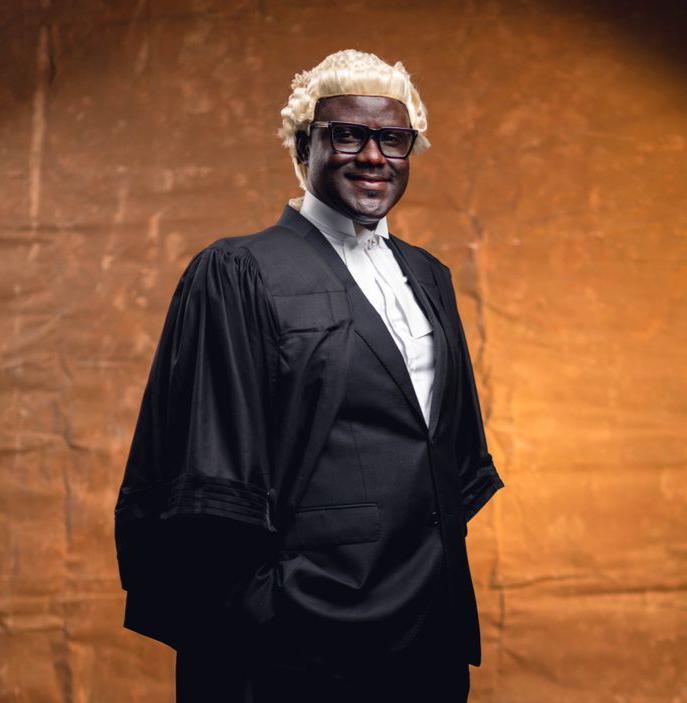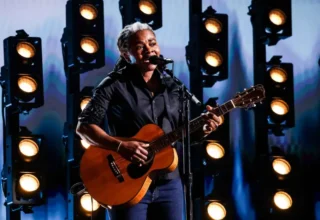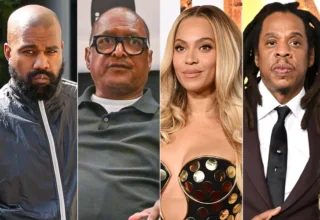
“He was shy. He was also funny. He was also very sweet.”
Anika Kotecha is remembering the Michael Jackson she knew. The one she visited at Neverland, and who used to phone her up to marvel at her trips to the supermarket.
“He’d go, ‘You went to the shops? Oh wow, what was that like?’
“And for me, I just went to pick up some bread and milk, but for him that’s amazing – because he can’t go and do that.
“It’s quite sad as well, but he was just the nicest guy.”
Kotecha says meeting the Man in the Mirror singer makes it hard for her to believe the rumours and accusations of child abuse that dogged him in life and in death.
“It does put a slant on these things,” she says.
“You compare it to the person you knew, and I feel stronger in my convictions because of that.”
Kotecha is speaking to the BBC after the broadcast of Leaving Neverland – a four-hour TV documentary which laid out the case against Jackson in gruelling, graphic detail last week on Channel 4 and HBO.
It focuses on two men, Wade Robson and James Safechuck, both in their late 30s, who allege the star befriended them as children, then sexually abused them for years.
The Jackson family has already fired back at the film, calling it a “public lynching” and the “ultimate betrayal” – and they’re not the only ones to dispute the claims.
Fans have congregated around the hashtags #MJInnocent and #MJFam, posting lengthy rebuttals to the documentary on YouTube, social media and specially-constructed websites.
They’ve protested outside Channel 4’s headquarters; and even bought adverts on London buses, carrying the slogan: “Facts don’t lie, people do”.
Dan Reed, who directed Leaving Neverland, told the BBC that he and Jackson’s accusers had also been targeted by Jackson’s fans.
“There’s been a lot of horrible things said about me online and we’ve received a lot of emails, too,” he said a few days before the documentary was broadcast.
“I’m amazed that people feel entitled to do that when they haven’t seen the film and don’t know anything about me and they know even less about Michael Jackson.”
On the last count, at least, he is wrong.
The fans behind the campaign include lawyers and journalists, who are forensically acquainted with Michael Jackson and the allegations against him.
“We surface court statements, investigations, including from the FBI, and previous statements that clearly conflict with the accusations and information presented in the HBO documentary,” says Tiffany, a US fan who posts under the name @RideTheBoogie.
“We felt very strongly we needed to be Michael’s voice,” says Kotecha, who, as an administrator of the MJInnocent.com website, helped organise the bus campaign.
“Because, ironically for someone whose entire career was based on his voice, he no longer has a voice.”
The movement to clear Jackson’s name has existed since he was first accused of molestation in 1993 (the case was later settled out of court for $23m), but it has become increasingly vocal since Leaving Neverland was announced in January.
A main thread of their argument concerns the credibility of Robson and Safechuck, both of whom previously testified that Jackson never abused them. They now say they felt pressured into supporting the singer.
Fans argue that Robson changed his story after being denied a role in a Jackson-themed Cirque Du Soleil production; and that he tried to sell a book detailing the abuse a year before he took his case to the courts.
They also note that both Robson and Safechuck have been unsuccessful in their attempts to sue the Jackson estate – although both men’s cases are now on appeal.
‘Not one shred of evidence’
“If their allegations were to be true, this would be an atrocity,” says Damien Shields, an Australian fan who has written a book on Jackson’s music.
“These are very serious allegations of heinous crimes against innocent children. They [Robson and Safechuck] should be allowed to raise their voices and say what they want to say – but also, if you’re going to do that, you need to be prepared to be scrutinised.
“And there is really nothing that is convincing when you look at the whole picture, to make you say, ‘without doubt I believe these people’.”
Fans are also aggrieved that Leaving Neverland offers no right of reply to Jackson or his family.
Reed argues that the film features footage of Michael’s denials but Shields says those clips are irrelevant.
“During his life, Wade Robson and James Safechuck supported Michael Jackson. So it baffles me that [Dan Reed] says he’s included footage of Michael’s denials, when the specific allegations he’s made a four-hour film about, Michael never had a chance to reply to.”
Going back further, fans highlight Jackson’s acquittal on child abuse charges in 2005; and direct sceptics to unsealed FBI reports on the star, dating from 1993-4 and 2004-5, which found no evidence of criminal wrongdoing.
“Not one shred of evidence,” says Kotecha. “You’d have to be some kind of super-human to be able to hide even the slightest thing from the FBI.”
“He was under a 10-year investigation by the FBI, he had two raids on his home, he was on a very public trial,” agrees Matt Blank, a spokesperson for the Michael Jackson World Network fan club.
“All of this brought up no evidence of any abuse. So there’s a part of you that has to say, ‘With all of this scrutiny, why do we suddenly believe [these] two people… that have come forward and gone straight for the money pot?”
What about Jackson’s own admission that he shared his bed with children? Doesn’t that give him cause for concern?
“I come from a viewpoint [that] Michael lived a very different life than we could ever imagine,” Blank told BBC Radio 5 live. “And I think just as the world misunderstood him, he probably misunderstood the world as well, a little.
“There is a big difference between what we deem as odd behaviour [and] committing a crime. You shouldn’t mix those two together, because that’s a dangerous territory.”
Despite his misgivings, Blank says Jackson’s accusers “come across as very convincing” in Leaving Neverland. Kotecha also says she approached the documentary with an “open mind”.
“I am interested in what they have to say,” she says, “because if they can challenge my beliefs, then I will look into it further.”
And that’s something that stands out: Jackson’s fans are not, as Mr Shields puts it, “loopy conspiracy theorists,” but a group of people who’ve arrived at their position thoughtfully and sincerely, even if they find themselves on the wrong side of popular opinion.
Mute Michael Jackson?
Tiffany, who is herself a survivor of sexual abuse, stresses that her defence of Jackson is not mere idol worship.
“The fact that I was abused helps me better understand people who are innocently accused, as well as the minds of those on the dark side,” she says.
“It’s far easier for many to believe accusations about a man they don’t understand or relate to. And, hey, it’s more much more thrilling to read and spread gossip than dispel myths, isn’t it?
“Missing from that equation is common sense and the review of justice system documents that contradict the accusations.
“As a victim of sexual abuse, I not only have a platform to motivate and inspire fellow victims, but I am compelled to fact-check the stories and credibility of potential victims.”
Nonetheless, defending Jackson has been a tough and, at times, lonely task.
“It’s exhausting and it affects me,” says Shields. “I can’t speak for everybody, but it definitely is taking a toll.”
And how does it change fans’ relationship to Jackson’s music?
“I have to be honest, it’s damaging it,” says Shields. “It’s putting a dampener on the pure bliss and joy and magic and escapism that artwork is supposed to provide us.”
Tiffany disagrees.
“As fans, we’re used to the cadence of negative stories. Each passing wave grounds me to what I truly believe in.
“While others suggest that we ‘mute Michael Jackson’, I’m instead compelled to turn MJ up. I’m going to play his music every chance I get, as loud as my speakers will handle. I’ll continue to fight for what I believe is true.
“It is the least I can do for a man who means so much to me.”
source bbc






